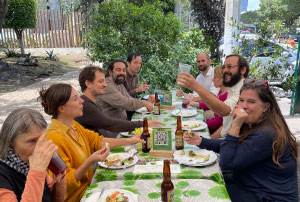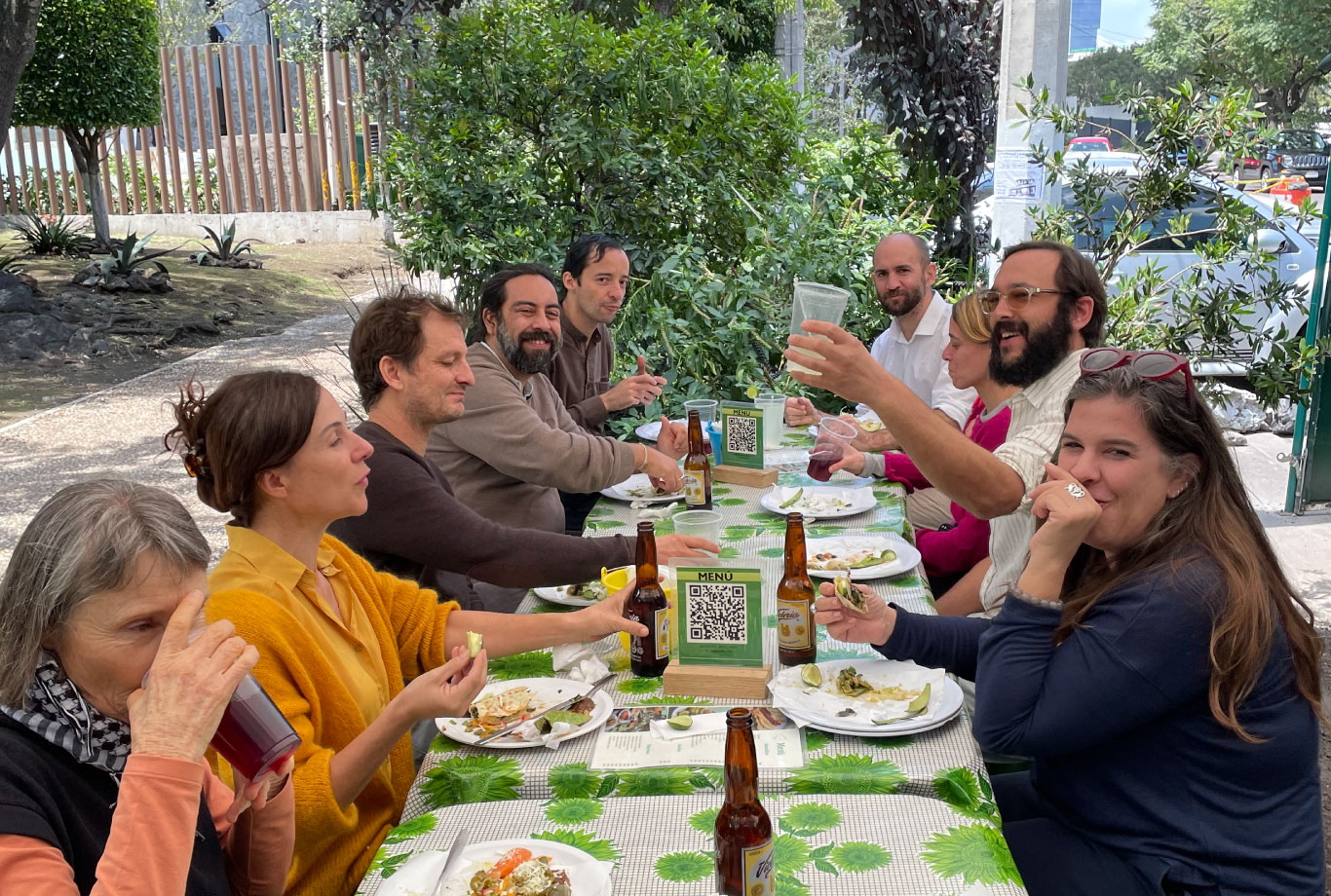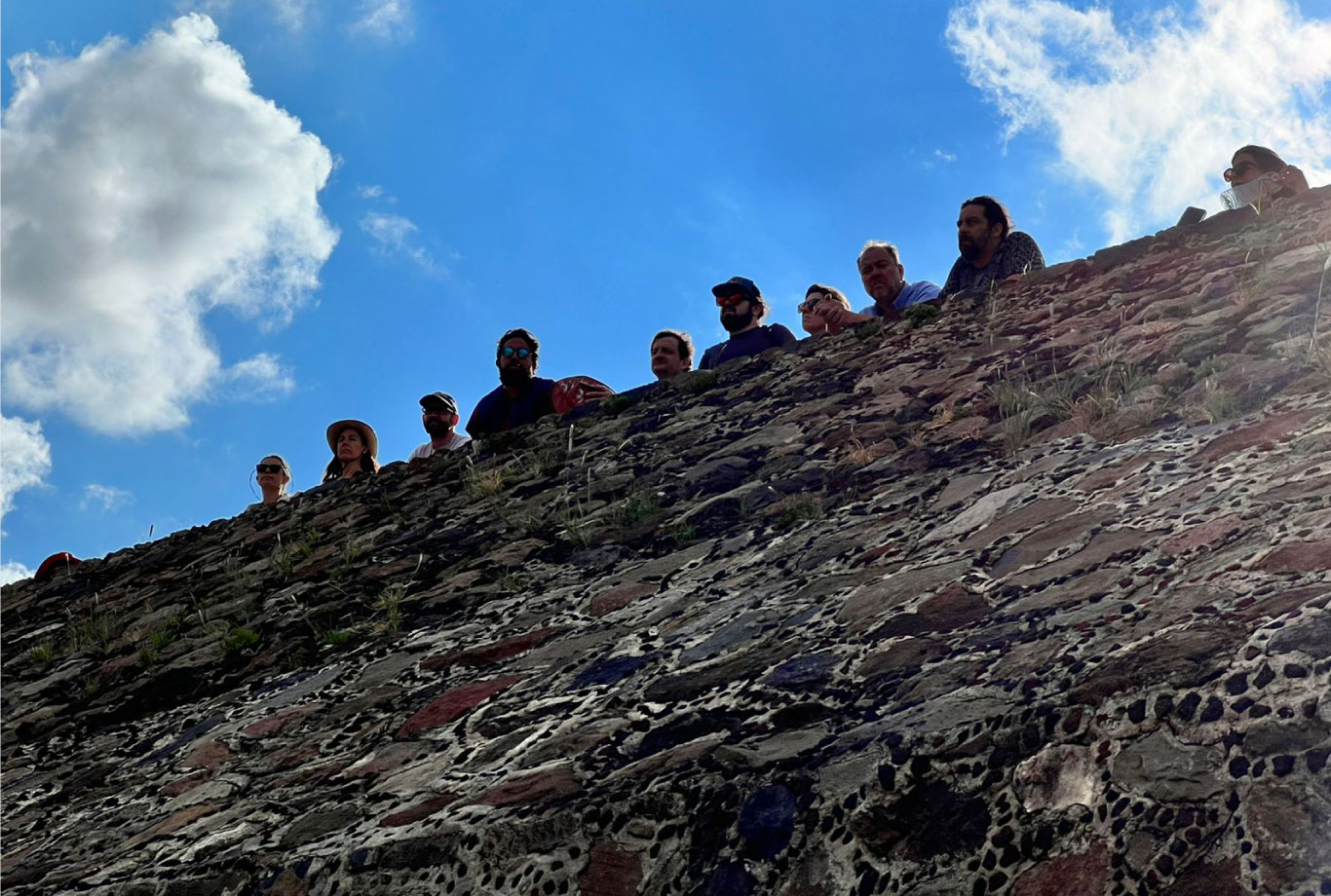
15 de Octubre, 2022
September 2022 was a month of intense activity regarding yoga studies in Mexico. Between the 20th and the 22nd of September the first Symposium of the YoLA® Project, titled Latin American Yoga in Dialogue, was held in the El Colegio de México. Together with specialists from across the globe we spent three nurturing days dedicated to explore and discuss various aspects of yoga in Latin America with a plurality of approaches. The participants of the Symposium were many of the members of the basic nucleus of the YoLA project (Adrián Muñoz, Borayin Larios, Mercedes Saizar and Gabriel Martino), but also other specialists from Mexico (Roberto García), Argentina (Victoria D’Hers), Brazil (Pamela Siegel), Chile (Macarena González Carmona), Spain (Ananda Ceballos), France (Raphaël Voix) and the United States (Amanda Lucía and Philip Deslippe). The meeting was carefully organized by Muñoz and Larios and was possible thanks to the funding provided by the Mexican National Council of Science and Technology (CONACyT).

The event focused on the analysis of the history and the ways in which the practice of yoga has transformed and adapted to the region since its arrival, by the end of the XIXth century. And one of the purposes of the gathering was to promote the discussion about the papers of the panelists, which eventually will be incorporated in a volume coedited by Adrian Muñoz and Borayin Larios. The constructive exchange was contemplated in the organization of the Symposium, given that it included the participation of Dr. Amanda Lucia (University of California, Riverside), who read the extended abstract of all the papers in advance and formulated suggestions and criticisms to each of the scholars. Dr. Lucia’s comments were followed by the observations of the organizers and, then, by the general discussion.
After the presentation and the opening of the Symposium by Muñoz and Larios, the first panel was in charge of Victoria D’Hers, Pamela Siegel and Raphaël Voix. The first paper addressed the contrasting conceptions of yoga in Argentina as a practice (sādhana) and as training. The second piece dealt with the movement founded in Venezuela by Serge Raynaud de la Ferrière, together with his esoteric and syncretic conception of yoga which had a wide diffusion in all Latin America. The third work was dedicated to the Loknath Yoga movement in Chile and it explored the interactions between Latin America and India in relation to this particular school.

During the second day, two consecutive panels were held. The first one included the contributions of Borayin Larios, Macarena González Carmona and Philip Deslippe. Larios provided an analysis of the practices of mantram in the context of a branch of the Great Universal Brotherhood in Mexico. González Carmona discussed the links between the Chilean poet and Nobel Prize in Literature Gabriela Mistral and the first school of yoga founded in the country, the Suddha Dharma Mangalam. Deslippe examined the history of the works of Yogi Ramacharaka published in Latin America. The second panel included, in the first place, the papers of Mercedes Saizar which showed the shift of the emphasis in the motivations for the practice of yoga during the last two decades in Buenos Aires. In the second place, Ceballos argued that the Integral Yoga tradition was initially introduced in Latin America by Cesar August della Rosa and only later through the works of Aurobindo. The last paper of the day, by Muñoz, examined Swami Yogananda’s tour around Mexico in the late 20’s and its impact in national mass media.
During the third day, the panel included Roberto García, who explored the meaning of the appropriation of Buddhist icons and practices among the yoga practitioners in Mexico, and Gabriel Martino, who analyzed the conception of the history and philosophy of yoga that DeRose offers in his writings. After the presentation of the papers, Dra. Amanda Lucia and the organizers shared their observations and the event finished with a general balance and reflection by the participants regarding the Symposium and the book to be published containing all the papers read.

Apart from the intense academic exchange occurred during the three days of the event, there were several moments of socialization, with informal but nonetheless enriching discussions and delicious and typical Mexican meals. Some of the topics spontaneously discussed were the criteria to define a Guru in the world of contemporary yoga, the links between the academic studies of yoga and the practitioners, the discursive tones appropriate for the academic works about contemporary yoga traditions, etc.
One of the most memorable moments shared by all the participants of the Symposium was the visit to the archeological complex of Teotihuacan. After an hour and a half of a journey that reminded us of the bumpy roads of rural India, we arrived to a marvelous stone city that hints through its structures and designs the silent truths of an eloquent and ancient wisdom. The long walk around the rocky constructions was also an excellent bonding opportunity and a new occasion to continue with our reflections. The voiceless metropolis that once was the scenario of the rise and fall of a culture that still has its heirs among the present Mexicans contributed in its way to put into words the problem of the continuity and subsistence of the millenary tradition of yoga.

The Symposium of the YoLA Project® was a very profitable occasion for each one of the participants, but also for the area of the academic studies on Yoga in Latin America. After swaying to the rhythm of Mexico, a wonderful country that rocked the first steps of a field of research that is still consolidating, all the participants returned to their countries and tasks confident that modern Latin American Yoga is a multifaceted phenomenon that deserves to be studied seriously and counting with new strategies and tools to carry out these studies.
Gabriel Martino is Core member of Poyecto YoLA®.


Alberto Allende
Pedro Urbano
Designed by Jannette Ramírez Arámburo in LimeSurvey
All photographs and images in the Gallery, friezes and banners are mostly courtesy of Adrián Muñoz, and some provided by Borayin Larios. Some exceptions are:
We would like to give due credit to the owners of the images we have used in this site. If you own rights to any of these, please contact us and we will proceed accordingly.